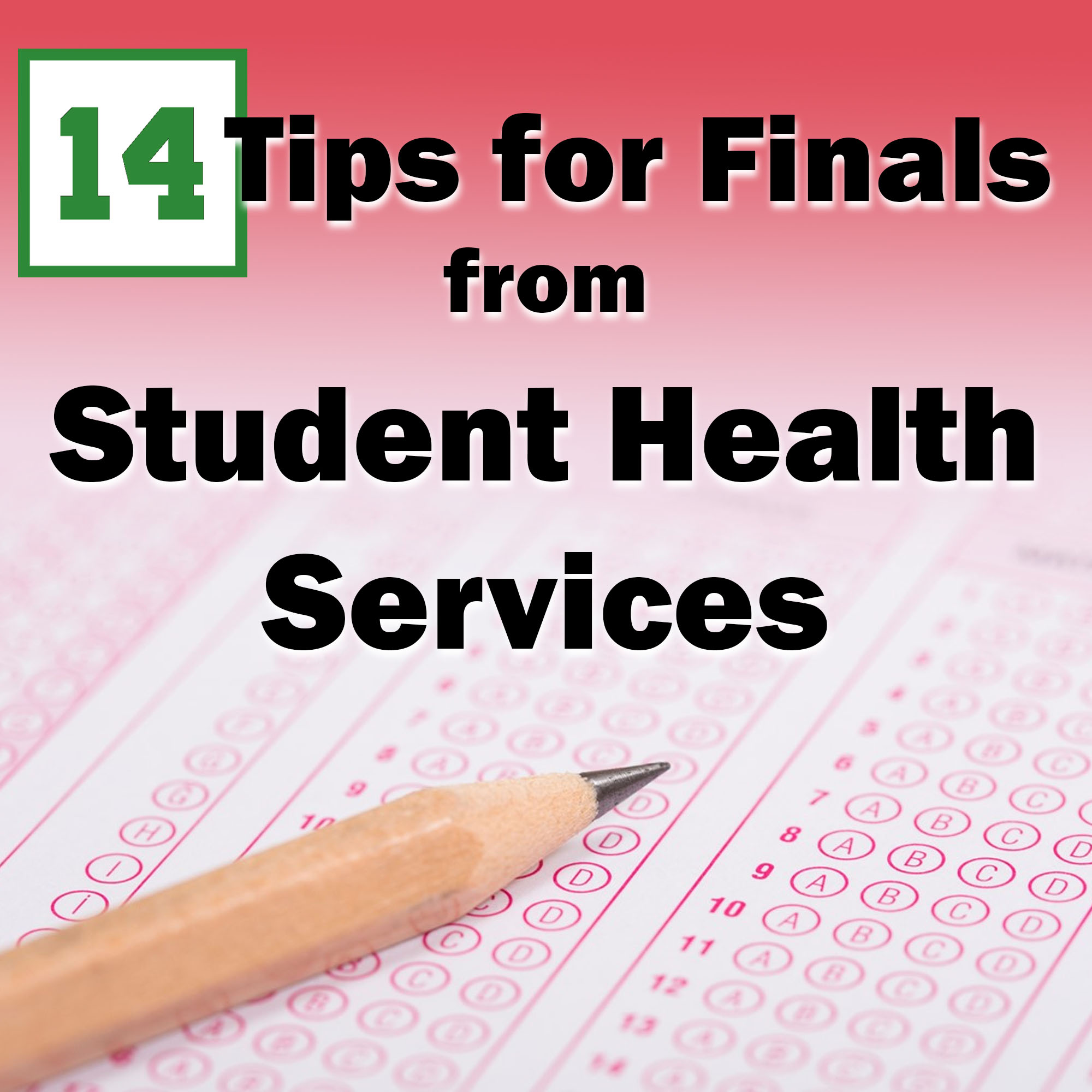

14 Tips for Finals from Student Health Services
By Ammon Cheney, Psy.D.
Published April 29, 2022
Finals time can be stressful for many, MANY, students. In fact, the atmospheric stress resonating through UVU’s campus near the end of each semester only recently ceased to have a negative impact on me (years after graduating from grad school). In all honesty, I probably still have a nightmare now and then about forgetting or failing an exam.
Debating the efficacy of various testing strategies has not gotten us any closer to finding a better way to measure competency, and so the testing continues. Therefore, we at SHS have collected some of our best tips to help you study for, and take your exams. Therapists and medical professionals have a good deal of testing in their rearview mirror. Each of the below suggestions comes from an SHS employee. I hope that some of these tips resonate with you, but just in case they do not, refer back to tip #1:
- “You know you best. It is difficult not to compare your study methods to your perception of what is working for others. Do not feel forced to conform to someone else’s model. Think about what study/testing methods have worked best for you and repeat them, or expand on them, until you are holding that degree.”
- “Reduce as many obstacles as possible for initiating the study session. Setting out the things that you need to study and having them ready to go is an important step. Making sure that you’ve eaten recently and that you have water accessible. The key is reducing the elements that can pull you away from your study session.”
- “When taking a test, at first, skip any question that is difficult or you're unsure about, and come back to it later. Start with the easiest questions and then, after you've gone through the test, go back and do the other ones. Often (in my experience) you'll remember information better once your brain has gotten started on the subject/started thinking about it more. It can also help anxiety to start with the easier questions.”
- “Taking deep breaths right before (and during) a test can be helpful.”
- “For studying, unless it's needed for the task at hand, put the phones away. Don't even have it within reach or within hearing distance.”
- “When studying, put whatever you're learning about into your own words instead of memorization. If you can explain it, then you probably understand it.”
- “Identify the times of day when you're most alert and earmark it for studying.”
- “For multiple choice and true/false tests, read the questions and answers carefully--keep an eye out for significant words (such as "always" and "except" and double negatives). Additionally for true/false tests, if one part of the answer is false, then the whole item is false. And don't forget to appreciate the work you've done independent of the outcome.”
- “My kids approach is to figure out if it really will affect your grade and if it does not affect it, just guess.” Truthfully, if you can help it, do not leave a question blank. Making an effort, even a guess, might get you some partial points, or communicate that you tried your best.
- “I love flashcards to help organize. I also like using a blue pen to help memorization.”
- “It’s okay to take breaks between studying and don’t forget the Sodalicious!”
- “Getting a good night of sleep prior to test taking helps the brain with better concentration/focus. I remember a tutor making a suggestion to eat a handful of almonds prior to test (as long as you’re not allergic to nuts). Drinking water is good too.”
- “For essay (and even some short answer) questions, spend a few minutes outlining (even briefly) your response before you start writing, making sure you're fully answering every part of the question. Look at your outline again after you're done writing, to make sure you covered the main points you meant to. Also, it can help to underline or highlight key words in the question (e.g., what, why, how, except, and, etc.).
- “Based on the encoding, storage, retrieval model of memory--tests have you retrieve information from your memory, but most of the time when we study, we just keep encoding it. In other words, don't just practice putting information into your memory--practice taking it out, because that's what you'll need to do on the test! Flash cards, quizzing yourself, or having someone else quiz you, are all helpful ways of doing that.”
Everybody at SHS is rooting for you! Go dominate those finals, Wolverines!

